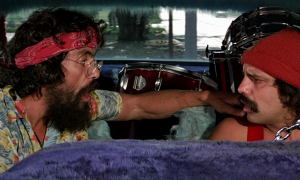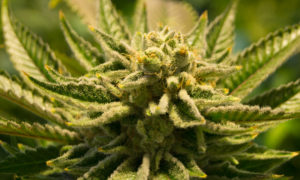August 2014: a German Green party politician stands on a rooftop in Berlin. At first glance, you think he’s just another public figure jumping onto the ALS Ice Bucket Challenge. However, besides pouring a bucket of frosty water on his head, he is sending a much more controversial message. His backdrop of choice for the nationally-broadcast event comprises two stereotypically “Green” items – a strip of solar panels and a waist-high cannabis plant.
“Legalisation is already under way across Europe”
Fastforward to last week in Milan, where the debate for the legalisation of cannabis production, consumption, and sale has come to the fore.
But this sudden shift in political thinking isn’t isolated to Europe. Canada and Uruguay have already begun taking an alternative approach to weed, and even our beloved Mike Baird recently approved the use of medicinal cannabis. Still, this cultural shift normally occurs well behind the culture it impacts.
“The friendly young bloke who helped us find our way explained that the 8ft high plants that caused the disruption actually supply the entire world’s hashish market”
MORE: Medicinal cannabis in NSW: what does it mean?
The discussion in Italy is circulating around the usual factors – the economy, control and adolescents. To spice things up, players such as the Catholic Church and the Mafia (who are against legalisation) have been thrown into the mix. The Mafia has created a culture for hashish – most likely shipped from the Moroccan hash fields – and supporters believe legalisation would disrupt this multimillion-dollar trade. The trade is typical for most southern European states: the closer to Morocco, the more hash.
“In notoriously liberal Berlin, 15g for personal use is allowed”
I’ll admit I did get lost once in Morocco’s northern mountains, and the friendly young bloke who helped us find our way explained that the 8ft high plants that caused the disruption actually supply the entire world’s hashish market. Maybe we misheard or it just got lost in translation. Nevertheless, the hash was delightful.
Moving north, Germany’s battle for legalisation is currently at the cleaners. In September last year, Andreas Müller, a highly influential juvenile judge, published a book titled Kiffen und Kriminalität (Smoking Weed and Criminalisation) aimed at highlighting the serious negative consequences of the ban.
In a country filled with around four million regular cannabis smokers, it is long overdue.
Possession of small amounts is tolerated, although it varies in volume from state to state. In notoriously liberal Berlin, 15g for personal use is allowed, yet in the conservative southern states of Bayern and Baden-Wüttenberg, a more hardline approach is taken.
Cannabis has had a rich history in Germany, fulfilling many medicinal functions in medieval times. It wasn’t until the early 20th century though that Germany followed the global trend of prohibition and criminalised the drug. It returned to mainstream culture during “Die Blumenkinder” (The Flower Children) movement of the ’60s and ’70s, which eventually led to the birth of the German Green party, where its traditional values are still being upheld.
Similarly, the Romans in Italy are noted for having utilised cannabis in numerous ways. Perhaps it’s this extensive history – a history lacking in Australia – that has contributed to the relaxed modern European attitudes.
Legalisation is already under way across Europe. All drugs have been decriminalised in Portugal for the past 15 years, and a recent change in laws in Spain has resulted in the sudden growth of cannabis clubs across the country (primarily in Barcelona) with Spain now being touted “the new Amsterdam”.
Weed shapes culture in more ways than we think, which is why these constructive debates around legislation need to be had. Legalisation allows individuals the responsibility to make their own informed choices – it’s a simple mantra that countries around the world have adopted to their own benefit. You don’t need a stoner sloth to tell you that.






































































































